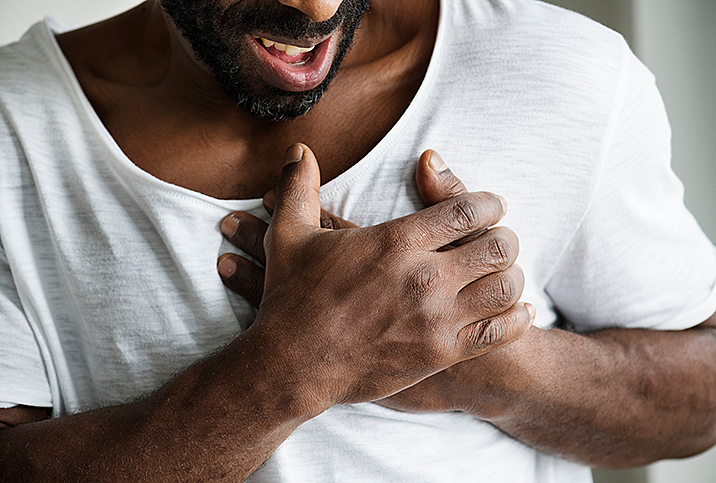Resuming Sex and Intimacy After a Heart Attack

Most people who survive a heart attack are able to resume a normal life after recovery, though a doctor might recommend taking medication and implementing healthy lifestyle changes to prevent future cardiovascular problems.
Depending on how badly your heart was damaged during the heart attack, your doctor might also ask that you limit certain types of intense physical activity, including sex.
Sex after a heart attack—when?
Having a heart attack can cause changes in many areas of your life, including your sex life. It’s normal to be concerned about these changes, and it’s important to keep an open line of communication with your doctor and your partner, so you can resume your intimate life in a safe way as you recover.
Taking time to rest after a heart attack is important. However, it’s also essential that you continue to incorporate physical activity into your life. According to the American Heart Association (AHA), in many cases, doctors will ask their patients to engage in more physical activity than they did before they had a heart attack.
As for sex, most survivors of heart attacks are able to resume their normal sex life within a few weeks. Every case is different, however, and you should talk to your doctor so you can find the safest path moving forward.
According to the AHA, if you’re able to walk up two flights of stairs without any pain or difficulty breathing, you are most likely ready to start having sex again.
How to resume intimacy
Easing back into intimacy after a heart attack requires some thought and care. These tips should help:
- Try not to have sex if you feel tired, just ate a large meal or have consumed alcohol.
- If you had surgery as a result of your heart attack, don’t start having sex again until you’re fully healed, which typically takes up to two months.
- Start slow. When you first start having sex again after a heart attack, let your partner take the lead with a more active role.
- Be mindful of the sexual positions you use. It’s important to avoid positions that put pressure or stress on your chest, especially if you’ve had surgery.
Low sexual desire after a heart attack
Many people experience reduced or nonexistent desire for sex for a while after a heart attack. Don’t beat yourself up about it. That’s normal and usually lasts for only a short period of time.
If you see a therapist or psychologist, try to loop them into the conversation early if you have any anxiety or fear about having sex after having surgery. Starting an earlier conversation and having an open and honest discussion as you move forward can help maintain a stronger bond, which is also needed for faster recovery. The same advice applies to you and your partner.
For some people, the lack of desire might stem from being tired or anxious. If you’re experiencing these feelings, try to give yourself the time you need to recover and keep an open line of communication with your partner. Though the situation might be different for a while, you and your partner can find other ways to stay emotionally connected in the meantime.
Some heart medications can cause low libido or even cause physical changes that make sex uncomfortable. If you experience this, ask your doctor for advice. And don’t forget to mention other medications you are already taking, because they may also decrease libido, and adding a new one that has similar effects can sometimes compound the problem. The doctor might be able to solve any issues by switching your medication. If that’s not an option, you can employ other strategies to overcome the side effects.
For instance, some blood pressure medications might cause erectile dysfunction or increased frequency of urination, which will almost certainly disrupt moments of intimacy. If you are being affected by one of these medications, you could plan to have sex before you take your blood pressure medicine for the day.
Make sure you don’t stop or change medications, or add unprescribed supplements to your daily regimen, without talking to your doctor first because this can cause serious health problems.
As you start to recover from a heart attack, remember that life will slowly return to normal but it’s more than possible you will experience feelings of anger, anxiety or depression along the way. If you’re struggling, lean on someone for help—whether that be your partner, a family member, a friend, a support group or a therapist. You do not have to face this alone.

















